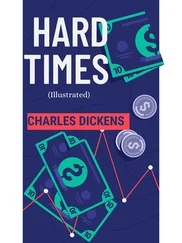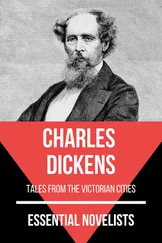“And when you have made it, you can keep it too, I should think,” said Cupid.
“ Kidderminster , stow that!” said Mr. Childers. (Master Kidderminster was Cupid's mortal name.)
“What does he come here cheeking us for, then?” cried Master Kidderminster, showing a very irascible temperament. “If you want to cheek us, pay your ochre at the doors and take it out.”
“ Kidderminster ,” said Mr. Childers, raising his voice, “stow that!—Sir,” to Mr. Gradgrind, “I was addressing myself to you. You may or you may not be aware (for perhaps you have not been much in the audience), that Jupe has missed his tip very often, lately.”
“Has—what has he missed?” asked Mr. Gradgrind, glancing at the potent Bounderby for assistance.
“Missed his tip.”
“Offered at the Garters four times last night, and never done “em once,” said Master Kidderminster. “Missed his tip at the banners, too, and was loose in his ponging.”
“Didn't do what he ought to do. Was short in his leaps and bad in his tumbling,” Mr. Childers interpreted.
“Oh!” said Mr. Gradgrind, “that is tip, is it?”
“In a general way that's missing his tip,” Mr. E. W. B. Childers answered.
“Nine oils, Merrylegs, missing tips, garters, banners, and Ponging, eh!” ejaculated Bounderby, with his laugh of laughs. “Queer sort of company, too, for a man who has raised himself!”
“Lower yourself, then,” retorted Cupid. “Oh Lord! if you've raised yourself so high as all that comes to, let yourself down a bit.”
“This is a very obtrusive lad!” said Mr. Gradgrind, turning, and knitting his brows on him.
“We'd have had a young gentleman to meet you, if we had known you were coming,” retorted Master Kidderminster, nothing abashed. “It's a pity you don't have a bespeak, being so particular. You're on the Tight-Jeff, ain't you?”
“What does this unmannerly boy mean,” asked Mr. Gradgrind, eyeing him in a sort of desperation, “by Tight-Jeff?”
“There! Get out, get out!” said Mr. Childers, thrusting his young friend from the room, rather in the prairie manner. “Tight-Jeff or Slack-Jeff, it don't much signify: it's only tight-rope and slackrope. You were going to give me a message for Jupe?”
“Yes, I was.”
“Then,” continued Mr. Childers, quickly, “my opinion is, he will never receive it. Do you know much of him?”
“I never saw the man in my life.”
“I doubt if you ever will see him now. It's pretty plain to me, he's off.”
“Do you mean that he has deserted his daughter?”
“Ay! I mean,” said Mr. Childers, with a nod, “that he has cut. He was goosed last night, he was goosed the night before last, he was goosed to-day. He has lately got in the way of being always goosed, and he can't stand it.”
“Why has he been—so very much—Goosed?” asked Mr. Gradgrind, forcing the word out of himself, with great solemnity and reluctance.
“His joints are turning stiff, and he is getting used up,” said Childers. “He has his points as a Cackler still, but he can't get a living out of them.”
“A Cackler!” Bounderby repeated. “Here we go again!”
“A speaker, if the gentleman likes it better,” said Mr. E. W. B. Childers, superciliously throwing the interpretation over his shoulder, and accompanying it with a shake of his long hair—which all shook at once. “Now, it's a remarkable fact, sir, that it cut that man deeper, to know that his daughter knew of his being goosed, than to go through with it.”
“Good!” interrupted Mr. Bounderby. “This is good, Gradgrind! A man so fond of his daughter, that he runs away from her! This is devilish good! Ha! ha! Now, I'll tell you what, young man. I haven't always occupied my present station of life. I know what these things are. You may be astonished to hear it, but my mother—ran away from me.”
E. W. B. Childers replied pointedly, that he was not at all astonished to hear it.
“Very well,” said Bounderby. “I was born in a ditch, and my mother ran away from me. Do I excuse her for it? No. Have I ever excused her for it? Not I. What do I call her for it? I call her probably the very worst woman that ever lived in the world, except my drunken grandmother. There's no family pride about me, there's no imaginative sentimental humbug about me. I call a spade a spade; and I call the mother of Josiah Bounderby of Coketown, without any fear or any favour, what I should call her if she had been the mother of Dick Jones of Wapping. So, with this man. He is a runaway rogue and a vagabond, that's what he is, in English.”
“It's all the same to me what he is or what he is not, whether in English or whether in French,” retorted Mr. E. W. B. Childers, facing about. “I am telling your friend what's the fact; if you don't like to hear it, you can avail yourself of the open air. You give it mouth enough, you do; but give it mouth in your own building at least,” remonstrated E. W. B. with stern irony. “Don't give it mouth in this building, till you're called upon. You have got some building of your own I dare say, now?”
“Perhaps so,” replied Mr. Bounderby, rattling his money and laughing.
“Then give it mouth in your own building, will you, if you please?” said Childers. “Because this isn't a strong building, and too much of you might bring it down!”
Eyeing Mr. Bounderby from head to foot again, he turned from him, as from a man finally disposed of, to Mr. Gradgrind.
“Jupe sent his daughter out on an errand not an hour ago, and then was seen to slip out himself, with his hat over his eyes, and a bundle tied up in a handkerchief under his arm. She will never believe it of him, but he has cut away and left her.”
“Pray,” said Mr. Gradgrind, “why will she never believe it of him?”
“Because those two were one. Because they were never asunder. Because, up to this time, he seemed to dote upon her,” said Childers, taking a step or two to look into the empty trunk. Both Mr. Childers and Master Kidderminster walked in a curious manner; with their legs wider apart than the general run of men, and with a very knowing assumption of being stiff in the knees. This walk was common to all the male members of Sleary's company, and was understood to express, that they were always on horseback.
“Poor Sissy! He had better have apprenticed her,” said Childers, giving his hair another shake, as he looked up from the empty box. “Now, he leaves her without anything to take to.”
“It is creditable to you, who have never been apprenticed, to express that opinion,” returned Mr. Gradgrind, approvingly.
“I never apprenticed? I was apprenticed when I was seven year old.”
“Oh! Indeed?” said Mr. Gradgrind, rather resentfully, as having been defrauded of his good opinion. “I was not aware of its being the custom to apprentice young persons to—”
“Idleness,” Mr. Bounderby put in with a loud laugh. “No, by the Lord Harry! Nor I!”
“Her father always had it in his head,” resumed Childers, feigning unconsciousness of Mr. Bounderby's existence, “that she was to be taught the deuce-and-all of education. How it got into his head, I can't say; I can only say that it never got out. He has been picking up a bit of reading for her, here—and a bit of writing for her, there—and a bit of ciphering for her, somewhere else—these seven years.”
Mr. E. W. B. Childers took one of his hands out of his pockets, stroked his face and chin, and looked, with a good deal of doubt and a little hope, at Mr. Gradgrind. From the first he had sought to conciliate that gentleman, for the sake of the deserted girl.
“When Sissy got into the school here,” he pursued, “her father was as pleased as Punch. I couldn't altogether make out why, myself, as we were not stationary here, being but comers and goers anywhere. I suppose, however, he had this move in his mind—he was always half-cracked—and then considered her provided for. If you should happen to have looked in to-night, for the purpose of telling him that you were going to do her any little service,” said Mr. Childers, stroking his face again, and repeating his look, “it would be very fortunate and well-timed; very fortunate and welltimed.”
Читать дальше
Конец ознакомительного отрывка
Купить книгу












